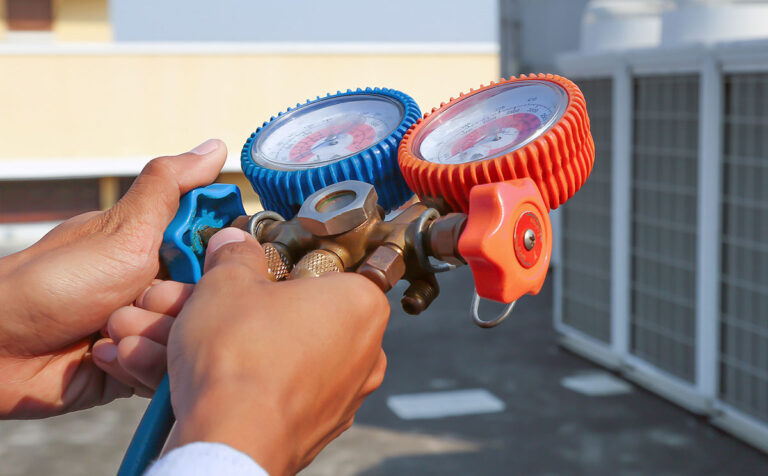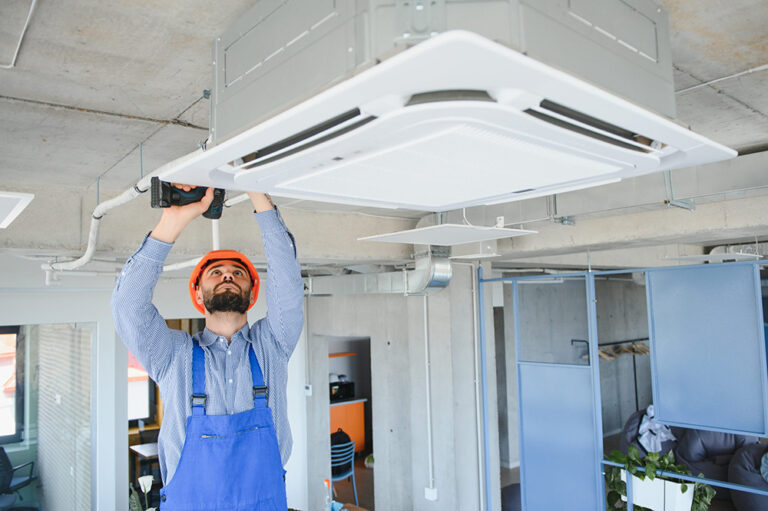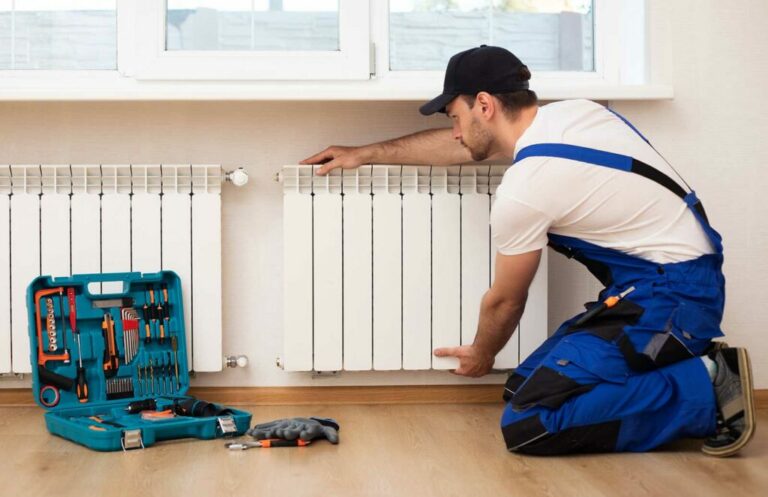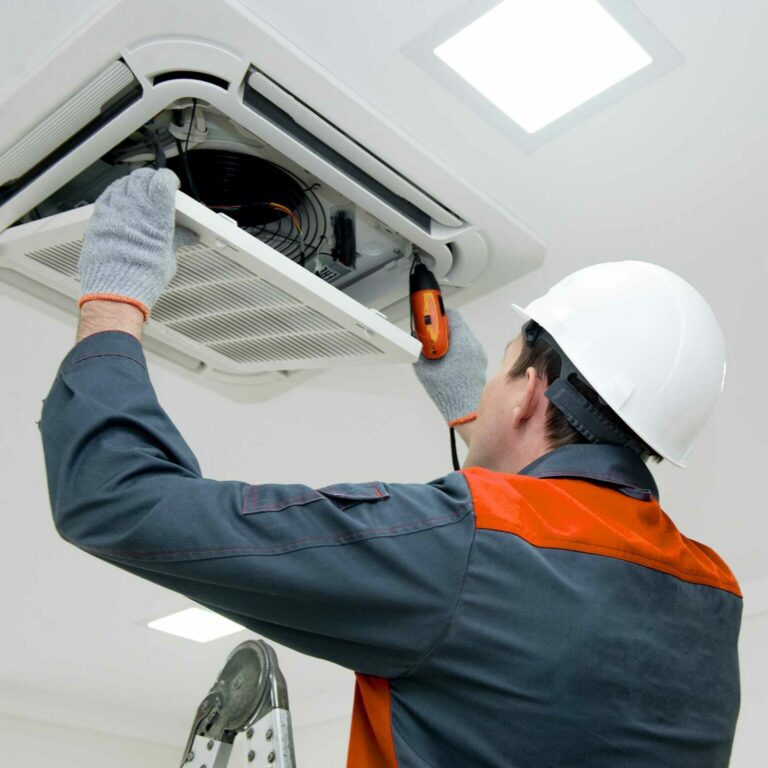
A commercial HVAC (Heating, Ventilation, and Air Conditioning) system is designed to regulate the temperature, humidity, and air quality in commercial buildings. These systems are essential for maintaining a comfortable and healthy environment in spaces like offices, retail stores, restaurants, and industrial facilities.
Let’s explore what makes a commercial HVAC system different from residential ones and why it is crucial for businesses.
Key Components of a Commercial HVAC System
Commercial HVAC systems are more complex and robust compared to residential systems. They are designed to handle larger spaces and varying heating and cooling needs. The key components include:
- Rooftop Units (RTUs): These are self-contained units placed on the roof of a building. RTUs combine heating and cooling elements and are ideal for commercial spaces due to their efficiency and space-saving design.
- Chillers: Chillers remove heat from a liquid via a vapor-compression or absorption refrigeration cycle. This cooled liquid is then used to cool and dehumidify air in large buildings.
- Boilers: Boilers are used for heating water or creating steam, which is then distributed throughout the building for heating purposes.
- Heat Pumps: Heat pumps are versatile units that provide both heating and cooling by transferring heat from one place to another.
- Air Handlers: These units circulate air through the building’s ductwork. They often contain elements such as fans, heating coils, and cooling coils.
Differences Between Commercial and Residential HVAC
Commercial HVAC systems differ from residential ones in several ways:
- Size and Capacity: Commercial systems are designed to handle the demands of larger spaces like office buildings and malls. They have a higher capacity to manage the greater volume of air and extensive areas, unlike residential units, which cater to smaller spaces like individual homes.
- Complexity: Commercial HVAC systems feature more complex controls and components to manage diverse needs across multiple zones. They allow for precise temperature regulation in different areas, unlike residential systems, which usually serve a single zone with simpler controls.
- Customization: Commercial HVAC systems are often customized to fit the specific requirements of the building and its occupants. This can include tailored ductwork and specialized ventilation systems. Residential systems, on the other hand, are typically more standardized and less tailored to individual home layouts.
Importance of Proper Installation and Maintenance
Proper installation and regular maintenance of commercial HVAC and Boise air conditioning systems are crucial for ensuring efficiency and longevity.
Poor installation can lead to system inefficiencies, higher energy costs, and frequent breakdowns. Regular maintenance helps identify potential issues early, keeping the system running smoothly and extending its lifespan.
Benefits of a Commercial HVAC System
Investing in a high-quality commercial HVAC system offers several benefits:
- Improved Comfort: Ensures consistent temperature and air quality throughout the building.
- Energy Efficiency: Modern systems are designed to be energy-efficient, reducing operational costs.
- Better Air Quality: Proper ventilation and air filtration improve indoor air quality, promoting a healthier environment.
- Enhanced Productivity: Comfortable indoor conditions contribute to better employee productivity and customer satisfaction.
Conclusion
A commercial HVAC system is essential for maintaining a comfortable and efficient environment in commercial buildings. With the right components and proper maintenance, these systems can significantly improve air quality and energy efficiency.
For professional installation and maintenance of commercial HVAC and Boise air conditioning systems, contact Innovative Mechanical Solutions today! Our team of experts will help you choose and maintain the perfect system for your business needs.





